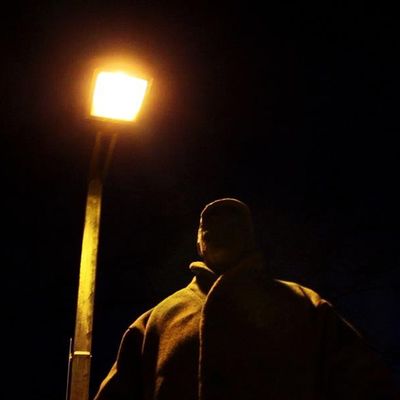
A farce and a political drama rolled into one, David Felix Sutcliffe and Lyric R. CabralÔÇÖs gripping documentary (T)error┬áhas the gaze of a persistent, unwelcome house guest. It begins by introducing us to Saeed Torres, or Saeed Sharrif, a Muslim and former Black Panther who met Cabral in 2002, and revealed to her in 2005 that he was an informant for the FBI, spying on others in the Muslim community. In 2011, weÔÇÖre told, he allowed Cabral and Sutcliffe to film his investigation into a man named Khalifah Al-Akili, an American-born Jihadist and ex-con fond of posting his enthusiastic support for Osama bin Laden and the Taliban on Facebook.
This kind of access to a confidential informant in the middle of an elaborate sting operation┬áÔÇö without any permission from the FBI or anyone else┬áÔÇö is already unprecedented. But as the film proceeds, Saeed, who says this will be his last case, becomes increasingly uncomfortable with the attention. ÔÇ£Now I see why no celebrities donÔÇÖt like paparazzi,ÔÇØ he remarks, half-jokingly. And the film has absorbed his unease into its aesthetic. So much of what we see of Saeed consists of fragments┬áÔÇö his arms, or the back of his head, or a shadowy profile, or an extreme close-up. HeÔÇÖs ever-present, but hard to pin down. We sense that heÔÇÖs invited the filmmakers┬áÔÇö and, by extension, us┬áÔÇö into his world, and is now trying to shake them off. For all of (T)errorÔÇÖs topicality and its thriller-like qualities, what makes the film is Sutcliffe and CabralÔÇÖs compact, complex portrait of Saeed┬áÔÇö paranoid, chatty, mired in self-loathing, but also oddly reflective. ÔÇ£I donÔÇÖt exist,ÔÇØ he says early on in the film. ÔÇ£IÔÇÖm a spook, an informant.ÔÇØ We sense no pride in his voice; his words seem filled with regret more than anything else.
ThereÔÇÖs another level of discomfort at work here, however: The sense that weÔÇÖre not quite getting the full picture with regards to the subject of SaeedÔÇÖs investigation. Even Saeed alternates between glorifying KhalifahÔÇÖs actions and dismissing them. He claims to be taking a bold stand for his religion, but he also admits he needs the money. Sometimes, he even concedes that Khalifah might not be the monster he seems to be. And SaeedÔÇÖs work as an informant is one way that he keeps the law from bothering himself; it benefits him to find monsters lurking out there in the shadows, even if theyÔÇÖre make-believe ones.
ThatÔÇÖs maybe the first half of┬á(T)error, and those averse to spoilers may want to skip this next part. Because the filmmakers, just as they scored access to Saeed, eventually start filming KhalifahÔÇÖs side of the events as well. And we realize that this guy┬áÔÇö dopey, misguided, and blustery as he may be┬áÔÇö is not a real Jihadist at all, and certainly no real threat to anyone. Not only that, but he seems well aware that somebodyÔÇÖs trying to set him up. (I wonÔÇÖt reveal how he finds out the FBI are watching him, but suffice it to say that the people tasked with keeping our homeland safe from terrorism donÔÇÖt appear to be very detail-oriented.) So, we get these perspectives on a collision path with one another. And┬á(T)error, like the punctuation in its title suggests, goes from being a tense procedural and absorbing character study to an astonishing, real-life satire about the surveillance state. You wonÔÇÖt know whether to laugh or cry.┬á


